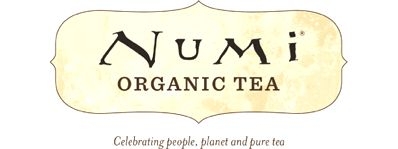

Numi

1.6
California, United States
December 2007
Beverages
Wholesale/Retail
United States
Numi Organic Tea blends premium organic teas and herbs with only 100% real ingredients, allowing nature to speak for itself. As a pioneering, quadruple-bottom line company (people, planet, product, profit), Numi sources its teas and ingredients directly from fair labor gardens that pay farmers and workers fair wages that allow their families to thrive. Over half of Numi’s teas are sourced from Fair Trade Certified gardens, which empower tea growers to invest Fair Trade premiums back into their communities. Fair Trade premiums earned on tea gardens have helped procure and develop new roads, cooking stoves, mosquito nets, schools, college scholarships, maternity benefits, onsite medical staff and life insurance for farming families. Numi is a company committed to reducing its impact on the planet through ecologically responsible choices in sourcing, production and recycled and non-GMO packaging. Numi Organic Tea sources organic teas and herbs, which helps protect the health of farmers, the consumer and the planet. Numi Organic Tea uses natural, biodegradable, filter-paper tea bags, rather than GMO corn or plastic “silky” tea sachets. Numi’s tea boxes are made of 85% post-consumer waste, printed with soy-based inks and without unneeded shrink-wrap.
Overall B Impact Score
Governance 14.1
Governance evaluates a company's overall mission, engagement around its social/environmental impact, ethics, and transparency. This section also evaluates the ability of a company to protect their mission and formally consider stakeholders in decision making through their corporate structure (e.g. benefit corporation) or corporate governing documents.
What is this? A company with an Impact Business Model is intentionally designed to create a specific positive outcome for one of its stakeholders - such as workers, community, environment, or customers.
Workers 28.1
Workers evaluates a company’s contributions to its employees’ financial security, health & safety, wellness, career development, and engagement & satisfaction. In addition, this section recognizes business models designed to benefit workers, such as companies that are at least 40% owned by non-executive employees and those that have workforce development programs to support individuals with barriers to employment.
Community 34.7
Community evaluates a company’s engagement with and impact on the communities in which it operates, hires from, and sources from. Topics include diversity, equity & inclusion, economic impact, civic engagement, charitable giving, and supply chain management. In addition, this section recognizes business models that are designed to address specific community-oriented problems, such as poverty alleviation through fair trade sourcing or distribution via microenterprises, producer cooperative models, locally focused economic development, and formal charitable giving commitments.
What is this? A company with an Impact Business Model is intentionally designed to create a specific positive outcome for one of its stakeholders - such as workers, community, environment, or customers.
Environment 40.9
Environment evaluates a company’s overall environmental management practices as well as its impact on the air, climate, water, land, and biodiversity. This includes the direct impact of a company’s operations and, when applicable its supply chain and distribution channels. This section also recognizes companies with environmentally innovative production processes and those that sell products or services that have a positive environmental impact. Some examples might include products and services that create renewable energy, reduce consumption or waste, conserve land or wildlife, provide less toxic alternatives to the market, or educate people about environmental problems.
What is this? A company with an Impact Business Model is intentionally designed to create a specific positive outcome for one of its stakeholders - such as workers, community, environment, or customers.
Customers 2.2
Customers evaluates a company’s stewardship of its customers through the quality of its products and services, ethical marketing, data privacy and security, and feedback channels. In addition, this section recognizes products or services that are designed to address a particular social problem for or through its customers, such as health or educational products, arts & media products, serving underserved customers/clients, and services that improve the social impact of other businesses or organizations.